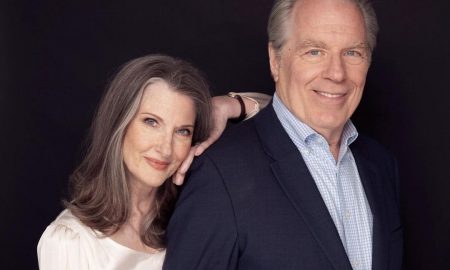
What’s Your Money Personality?

 What happens when you have a clinical psychologist turn into a financial planner? Well, you get some interesting speculation on the relationships between personality type and spending habits, for one. And that’s exactly what we’re here to delve into. According to Brad Klontz, who has many years of experience in studying the links between his clients’ relationship with money and their assumptions or beliefs. Klontz has come up with four types of money personalities, so to speak, that are the driving force behind each of our money habits. Let’s see which group you fit into, shall we…
What happens when you have a clinical psychologist turn into a financial planner? Well, you get some interesting speculation on the relationships between personality type and spending habits, for one. And that’s exactly what we’re here to delve into. According to Brad Klontz, who has many years of experience in studying the links between his clients’ relationship with money and their assumptions or beliefs. Klontz has come up with four types of money personalities, so to speak, that are the driving force behind each of our money habits. Let’s see which group you fit into, shall we…
The Spending Types
So to take a good look at your financial lifestyle, you have to think beyond how you spend your salary each month. Financial behaviors run on the surface, ut underneath the surface lie a lot of deep-rooted beliefs and subconscious thoughts and motivations that drive your spending habits. Whichever you identify with most is your money personality, though you may relate a little to each type.
Money Avoidance
In this category are the types of money spenders who prefer to avoid money entirely. These are people who tend to have negative beliefs about wealthy people and generally feel that money simply leads to corruption.
Money Worship
 In this group, we have those who believe that having increasing amounts of money will somehow solve their problems and help them feel a better sense of fulfillment or happiness. Money worship has links to a range of other issues in spending or acquiring money, like being a shopaholic or struggling with workaholism.
In this group, we have those who believe that having increasing amounts of money will somehow solve their problems and help them feel a better sense of fulfillment or happiness. Money worship has links to a range of other issues in spending or acquiring money, like being a shopaholic or struggling with workaholism.
Money Status
In this type, we see people who strongly believe that your financial status ties in with your social status. So in other words, your net worth determines your self-worth. This is the group of people who tend to lie about the money they make and only bu new and flashy things.
Money Vigilance
Money vigilant people have anxiety over what the future holds, driving them to always have an emergency pool of funds to dip into should something crop up requiring money. People who fall into this category place more focus on saving and ted to find themselves a nervous wreck if they don’t have an emergency fund at hand kept aside. These people also tend to be more secretive about their money, not readily saying how much they have or how much they make.
A Word On Money Personalities
It was found that the most desirable script for the long run according to Klontz is the money vigilance group, as Klontz has recognized that most of his wealthy clients fall into this camp. However, Klontz assures that there is no issue with falling into one of the remaining three groups as it is possible to inhabit different scripts over time. Your money personality is basically dynamic, then. There are several factors that contribute to your financial habits and behavior and that underly them. For example, being raised in a household with money shortages can lead you to develop tendencies that fall into he money status group, while growing up with a parent constantly working can lead you to fall into money avoidance. Thinking about your experiences and what has shaped your money personalities may lead you to important revelations about yourself.
 So, if you’re wondering what use it is knowing what your money personality is at all, it’s good to know that identifying your money personality happens to be the first step to take before you are able to transform your money habits and improve your finances. A good idea is to find someone who has better money habits than you do and who possesses the money personality you would most like to lead your own habits towards, and use them as a role model. Picking someone else’s brain is almost the work of an anthropologist or a psychologist, and it’s a whole lot of fun, too – figure out how they think about money and what it is like for them. Considering what is holding you back and what the association behind your spending habits are can help you improve your relationship with money greatly. Cheers to better financial wellness in 2020 – and of course, to being more vigilant!
So, if you’re wondering what use it is knowing what your money personality is at all, it’s good to know that identifying your money personality happens to be the first step to take before you are able to transform your money habits and improve your finances. A good idea is to find someone who has better money habits than you do and who possesses the money personality you would most like to lead your own habits towards, and use them as a role model. Picking someone else’s brain is almost the work of an anthropologist or a psychologist, and it’s a whole lot of fun, too – figure out how they think about money and what it is like for them. Considering what is holding you back and what the association behind your spending habits are can help you improve your relationship with money greatly. Cheers to better financial wellness in 2020 – and of course, to being more vigilant!
More in LifeStyle
-
`
WWE SmackDown to Make a Comeback on USA Network in 2024
In a surprising twist, WWE’s Friday night staple, “SmackDown,” is bidding farewell to Fox and heading back to its old stomping...
November 24, 2023 -
`
Why Women Face Higher Out-of-Pocket Health Expenses
In healthcare, disparities persist, and a recent report from Deloitte underscores a significant financial gap between working women and men in...
November 18, 2023 -
`
Elon Musk vs Bill Gates: The Clash of Titans
In the realm of the world’s wealthiest individuals, a simmering rivalry has been captivating public attention. It’s not a clash of...
November 7, 2023 -
`
The Power Of Disconnecting
In our digitally driven age, where smartphones, tablets, and laptops have become extensions of ourselves, disconnecting might seem daunting. However, the...
October 31, 2023 -
`
JCPenney’s Bankruptcy: The End of an Era
JCPenney filed for bankruptcy in a move echoing the struggles of many retailers in the wake of the COVID-19 pandemic. This...
October 26, 2023 -
`
Reasons Why You Need a Financial Plan
Financial planning is not just for the wealthy or those nearing retirement. It’s a crucial tool for anyone seeking financial security...
October 19, 2023 -
`
How Brad Pitt Spends His Millions All Over the World
Brad Pitt, the charismatic Hollywood superstar, has left an indelible mark on the silver screen and made an impact in the...
October 10, 2023 -
`
Gen Z’s Posh Palate: The Unexpected Rise of Caviar Culture
Amid the backdrop of a digital era buzzing with viral dances, e-sports, and niche memes, there emerges a peculiar plot twist:...
October 7, 2023 -
`
Transform Your Retail Business With Social Media Mastery
If you’re a retail marketer posting your social media messages haphazardly, you might be missing out on prime opportunities to turn...
September 26, 2023















You must be logged in to post a comment Login